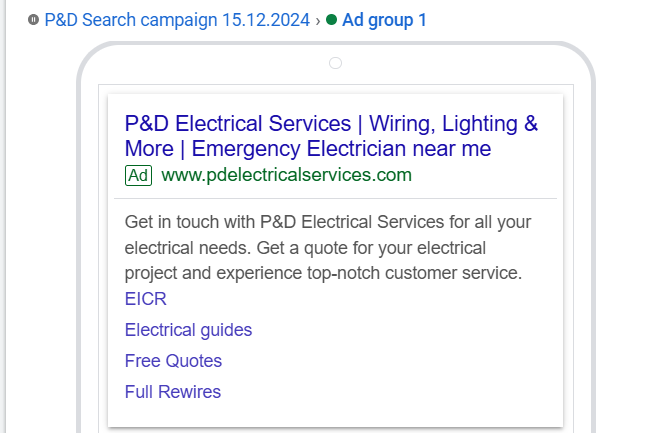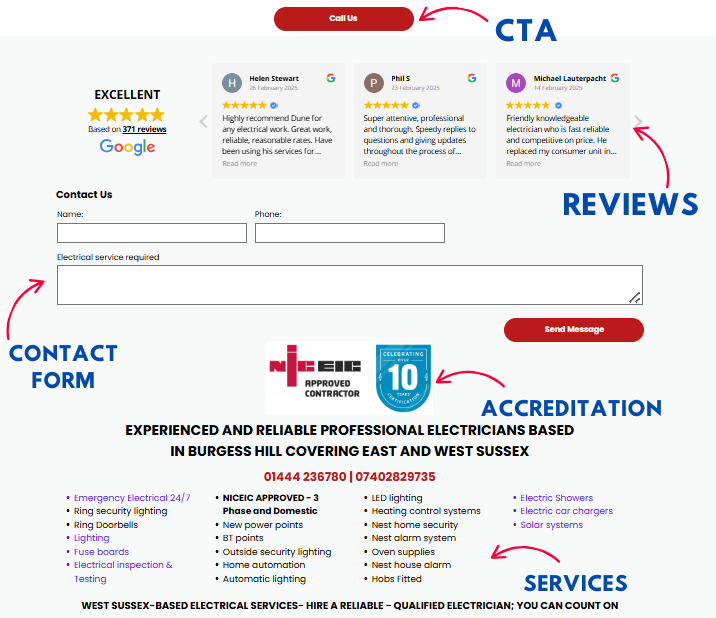Turn Clicks into Clients: Building a PPC Strategy in London
Turn Clicks into Clients Building a Killer PPC Strategy in London
Introduction: Why PPC Still Works in 2025
Imagine this: You're a small business owner in London. You’ve got a beautiful WordPress site, mobile-friendly, sleek, fast. But there’s just one problem — no one is visiting it. It’s like building a stunning store in a hidden alleyway in Soho — all charm, no footfall.
This is where Pay-Per-Click (PPC) advertising swoops in like a GPS for your ideal customer. When done right, PPC doesn’t just bring traffic — it brings ready-to-buy customers directly to your digital doorstep.
And if you’re in London, the competition is fierce. Whether you're a plumber in Peckham or a legal consultant in Leicester Square, every click counts — literally.
In this guide, we’re diving into how to build a killer PPC strategy specifically for WordPress websites in London. It’s part art, part science, and fully worth it.
💥
Want to see similar results on your WordPress site?
Book a
free website audit with our PPC experts today. We’ll pinpoint the quick wins and hidden conversion killers that are draining your ad budget.
Contact Us
📚 Table of Contents
- Understanding the London landscape
- Building the Foundation: WordPress + PPC = 🔥
- Keyword Strategy That Actually Converts
- Crafting Click-Worthy Ads That Sell
- Landing Pages: The Secret Weapon
- Tracking What Matters: From Clicks to Conversions
- Scaling Your Success Strategically
- Final Thoughts: From Traffic to Trust
- Bonus CTA and Free Download
1. Understanding the London Landscape
London isn’t just any market. It’s a living, breathing marketing jungle — diverse, fast-paced, and hyper-competitive. What works in Manchester or Leeds might flop in Camden. That’s why a location-sensitive PPC approach matters more than ever.
Here’s what makes London unique for PPC:
- Localised demand: People want local services — and quickly.
- Mobile-First: Over 70% of users click ads from mobile devices.
- Niche Competition: Every industry has its sharks — electricians, consultants, real estate agents, and legal professionals.
🎯 Pro Tip: Use borough-based targeting — e.g., “WordPress SEO Expert Hackney” or “PPC Management Stratford” — to reduce cost-per-click and increase ad relevance.
2. Building the Foundation: WordPress + PPC = 🔥
Think of your PPC campaign like a high-performance sports car. If PPC is the engine, WordPress is the chassis. If your WordPress site is slow, messy, or doesn’t have a clear funnel — all that expensive traffic will just bounce.
Essentials to Check Before Running Ads:
- ✅ Mobile Optimised? Over 70% of PPC clicks come from mobile.
- ✅ Fast loading? Use plugins like WP Rocket or LiteSpeed Cache.
- ✅ Clear CTAs? Buttons like “Call Now” or “Get a Quote” should be visible above the fold.
- ✅ Trust elements? Add testimonials, Google reviews, and trust badges.
- ✅ Tracking Setup: Google Analytics + Tag Manager + Conversion Goals.
We once helped a West Sussex Electrician who was spending £1,200/month on PPC. His site looked great, but conversions were low. The culprit? No visible CTA on mobile. A simple fix — adding a sticky "Book Now" button —
doubled his conversions in two weeks.
3. Keyword Strategy That Actually Converts
Here's where most campaigns go wrong: targeting the wrong keywords. You don’t want just traffic. You want qualified leads who are ready to take action.
Types of Keywords to Focus On:
- Intent-Based: “WordPress PPC expert London”, “pay per click for local business”
- Long-Tail Keywords: Lower competition and higher conversion. E.g., “affordable PPC for WordPress freelancers London”
- Competitor-Based: Bid on competitor brand names (carefully and legally).
Pro Tip: Use tools like SEMrush, Ubersuggest, and Google’s Keyword Planner to mine high-intent keywords with low competition.
4. Crafting Click-Worthy Ads That Sell
Now that your keywords are dialled in, it’s time to write the ad copy that will make people want to click. It’s all about standing out and conveying your unique value in a small space. Think of your PPC ad like a first date: you’ve got one chance to make a great first impression.
Key Elements for Killer PPC Ad Copy:
- Compelling Headline: Use powerful words like “Best,” “Exclusive,” or “Guaranteed” to capture attention immediately.
- Unique Selling Proposition (USP): What makes you different? You’re not just another WordPress expert. Highlight your local knowledge or 24/7 support.
- Clear Call-to-Action (CTA): “Get Started Now”, “Free Consultation”, or “Call for a Quote” — keep it simple and direct.
- Urgency and Exclusivity: Limited-time offers, scarcity ("Only 3 spots left"), or time-sensitive discounts can push people to act now.
Example of Great Ad Copy:

🛠️
Your ad copy might be costing you clients.
We’ll rewrite one of your live PPC ads for
free — no strings attached.Let us show you what compelling, click-worthy copy looks like.
Contact Us
💡 Pro Tip:
Ad extensions can increase your CTR by 15-30%. Use sitelink extensions, call extensions, and structured snippets to provide more options and information.
5. Landing Pages: The Secret Weapon
Traffic is great, but conversions are better. Without an optimised landing page, your PPC campaign is a house built on sand.
What Makes a Great Landing Page?
A good landing page acts as a seamless continuation of your ad. If your ad promises a “Free PPC Audit”, the landing page should deliver on that promise. Here are some key elements:
- Matching Message: The headline, content, and CTA on your landing page should align perfectly with your ad.
- Lead Magnet: Offer a free resource, such as a guide, checklist, or instant quote, to encourage form submissions.
- Social proof: Include testimonials, case studies, and reviews to build trust.
- Simple Form: Ask for only what you need — name, email, phone number. The simpler, the better.
- Fast Load Speed: Use tools like GTMetrix or Google PageSpeed Insights to check load times.
Example of Landing Page Optimization:

Pro Tip:For WordPress sites, tools like Elementor and Unbounce can help you quickly create high-converting landing pages with minimal effort.
Remember: Every page is a potential sales funnel. The moment someone clicks on your ad, you have a few seconds to earn their trust.
6. Tracking What Matters: From Clicks to Conversions
PPC can’t just be about getting clicks — it’s about tracking real results. Think of it as turning data into decisions.
Here’s how to track effectively:
Key metrics you need to monitor:
- Click-Through Rate (CTR): Measures ad effectiveness. High CTR = attractive ad copy. Low CTR? Time to rework your message.
- Conversion Rate: How well does your landing page turn visitors into leads or sales? If your CTR is high but your conversions are low, the issue may be with the landing page, not the ad.
- Cost Per Acquisition (CPA): How much does it cost to gain one customer? Track this closely to measure ROI.
- Quality Score: Google’s internal rating system that impacts your CPC (cost per click). Improve your landing page, ad relevance, and expected CTR to boost this score.
Why is tracking so important?
Imagine driving a car without a speedometer — you wouldn’t know if you’re speeding or going too slowly. The same applies to PPC. Tracking ensures you’re getting the best results and avoiding wasted spend.
Pro Tip:
Use
Google Analytics Goals and
Google Tag Manager to track conversions, e.g., form submissions, call button clicks, or content downloads.
7. Scaling Your Success Strategically
Once you’ve seen success with your PPC campaign, scaling is the next step — but it has to be done strategically. Throwing more budget at your current campaign without tweaking it can lead to wasted spend.
How to Scale Effectively:
- Increase budget on high-performing ads: If certain keywords, ads, or geographic locations are performing well, increase their budget.
- Expand to More Locations: London is huge! To expand your reach, you can target different boroughs or nearby areas.
- Remarketing Campaigns: This is the secret sauce for many businesses. Retarget users who clicked but didn’t convert with special offers or reminders.
- A/B Testing: Always test new ad copy, landing pages, or even different offers to see what performs best.
- Optimize for Mobile: With mobile traffic dominating, make sure your ads and landing pages are optimised for a mobile-first experience.
Pro Tip:
Start with a small test budget, measure results, then scale only what’s working.
Double your budget slowly, not all at once.
8. Final Thoughts: From Traffic to Trust
At the end of the day, PPC is all about trust. When people click on your ad, they are making a small leap of faith that you’ll deliver what you promised. That leap, if you do everything right, can lead to a long-term relationship — and, more importantly, to sales and growth.
However, trust isn’t just about having the right ad copy or a fast landing page. It's about consistency across the entire customer journey. From the moment they click, to the point they become your customer (and hopefully a repeat client), the experience must be seamless, transparent, and value-driven.
What does building trust look like?
- Honesty in Your Ads: If you promise a “Free PPC Audit”, ensure it’s truly valuable — and not just a sales pitch.
- Clear Value Proposition: Demonstrate exactly how your services benefit the customer, not just what you do.
- Transparency: Communicate pricing, processes, and expected outcomes clearly.
At Connect SEO, we specialise in helping businesses just like yours harness the power of PPC to turn clicks into clients. Whether you're just starting or looking to optimise your existing campaign, we’re here to help you dominate the search results and scale your business.
📞 Get a Free Consultation Today! Click here to book your free strategy call, and let’s start building your winning PPC strategy now.












